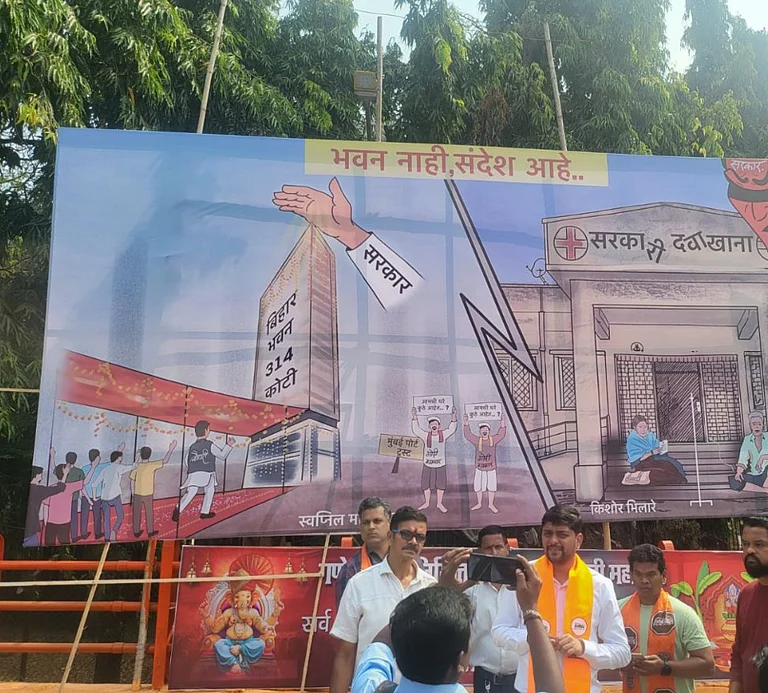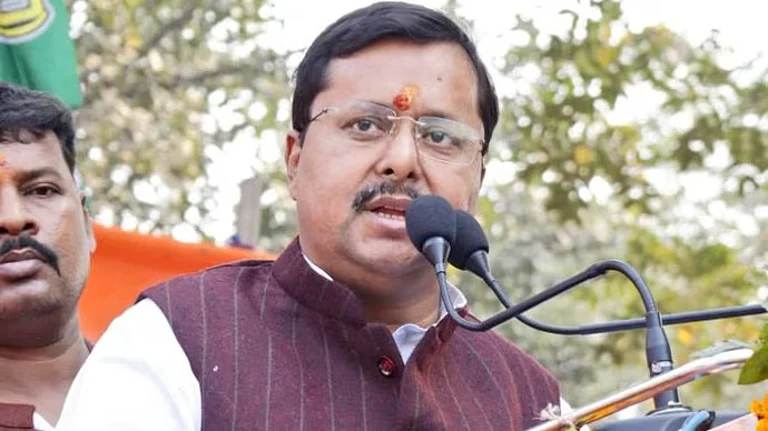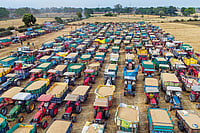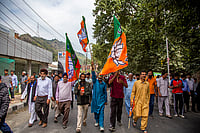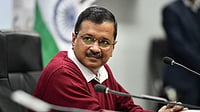The ongoing debate over caste representation and affirmative action in India reached a pivotal juncture last year with the release of a significant caste survey conducted in Bihar. This state-level initiative, led by the Janata Dal (United) [JD(U)] and its then ally Rashtriya Janata Dal (RJD), sparked a multifaceted political discourse that extends beyond state boundaries, impacting national politics and policymaking.
The Bihar caste survey not only reshapes local political dynamics but also invigorates the broader national conversation about social justice and reservation policies. The debate has garnered support from various political figures across the spectrum.
Union minister Chirag Paswan—the president of the Lok Janshakti Party–Ram Vilas (LJP-Ram Vilas) and an ally of the Bharatiya Janata Party (BJP)-led National Democratic Alliance (NDA)—has been a vocal advocate for a national caste census.
He emphasises the critical role of a caste census in developing effective government policies. “Our party believes it is essential because both state and central governments often create schemes with caste considerations in mind. The purpose of these schemes is to incorporate various castes into the mainstream.”
He adds, “For these schemes to be effective, the government needs precise data on the population of each caste. This information is crucial for fair allocation of resources and funds."
To read more stories from Outlook's 21 September 2024 magazine issue 'Caste vs Caste', click here
The JD(U), despite being a key ally of the BJP within the NDA, has shown its “commitment” to discuss caste census on a national platform. This was evident during the inaugural session of the newly reconstituted parliamentary committee on August 29 for the welfare of Other Backward Classes.
The committee, now comprised of 30 members and chaired by BJP MP Ganesh Singh, has been convened to outline subjects for detailed review in the 2024-25 session. The proposal to discuss the caste census, according to sources, was initially put forward by DMK MP T R Baalu, with subsequent support from Congress MP Manickam Tagore and JD(U) MP Giridhari Yadav.
Though JD(U) leaders assert that the party’s support for a caste census underscores its broader “commitment to social justice issues”, analysts remain sceptical. Naval Kishore Chowdhary, the former head of the Economics Department at the Patna University, suggests that the JD(U) and other NDA allies claim that the caste survey aims to facilitate targeted welfare initiatives, but its underlying purpose is to emphasise the importance of caste in Bihar’s political landscape.
He remarks, “The prevailing view is that the BJP is primarily composed of upper castes. It’s evident that these new figures will be leveraged to promote Mandal politics.”
The Land Reforms Debate
In a parallel political issue, Nitish Kumar established the ‘Land Reforms Commission’ in 2006 under the chairmanship of Debabrata Bandyopadhyay. The commission submitted its report to the state government in 2008. However, seven years later, Kumar has yet to show any initiative to implement its recommendations.
The commission was given eight areas of focus, including effective measures for land ceiling, land surveying, ownership and tenancy rights and general land-related questions. After extending its one-year deadline once, the commission submitted its report in 2008, presenting data on landlessness from the 1990s.
According to these figures, the rate of landlessness in the state increased significantly during that period.
The commission reported that 67 per cent of rural poor were landless or nearly landless in 1993-1994, a figure that rose to 75 per cent by 1999-2000. During this period, poverty decreased among land-owning groups, while poverty among landless groups increased from 51 per cent to 56 per cent.
However, statistics alone do not always present the full severity of the issue, and there is no discussion of the contemporary poverty index here.
The commission made several key recommendations to protect the interests of the landless. In Bihar, there are up to 1.8 million acres of surplus land, either under government control, land donation committees, community control or occupied by individuals. The commission recommended distributing this land to the landless.
Among its recommendations, the commission suggested that a separate law for tenancy protection should be established. It proposed that there be only two categories of land rights: (a) tenant, who will have full ownership, rights and interests in the land, and (b) cultivator, who will not have ownership rights but will have the right to continuous cultivation. Every tenant should hold a document listing the landowner’s name and the number of the land plot they are cultivating. A verified copy of this document should be provided to the landowner.
The commission also suggested that the tenant’s right to cultivate should be hereditary and that the distinction between agricultural and non-agricultural land should be abolished. Land should be defined simply to prevent evasion of ceiling provisions. Exemptions from the ceiling for specific land uses should be abolished. For families with five or more members, the land limit should be 15 acres. Religious institutions existing since 1950 should be allotted 15 acres as a unit, and each temple should be treated as one unit even if multiple temples are present in the same or adjacent premises.
The commission emphasised the need for proper utilisation of acquired lands and recommended that the government verify whether entities using large tracts of land are doing so for their intended purposes. Based on this, the government should have the authority to reclaim surplus land or allow entities to retain additional necessary land for operations.
Political Manoeuvring
Critics argue that the caste census and land reform initiatives are more about political manoeuvring than genuine social justice. “Caste census is solely a political agenda of the JD(U). Nitish’s idea of social and economic transformation is limited. Had he been so serious, he would have implemented the commission’s report. He would have come up with data on land and asset holdings of intermediary castes and done its redistribution,” says Chowdhary.
He points out that while some castes like the Koiri, Kurmi, Kushwaha and Yadavs benefited from whatever land reforms that took place in the state, the broader aim of social justice remains unmet. “A homogenous society, which the concept of reservation wants to ensure, cannot be imagined without economic justice and equal distribution of land and resources. In a nutshell, social justice has been reduced to caste justice,” he adds.
If the Bihar government is genuinely committed to social justice, he says, it should introduce legislation addressing wealth tax, inheritance tax, reservations in both public and private sectors, betterment levies and the redistribution of assets and income. “Eighty-ninety per cent contents of social justice hinge on economic measures. The remaining aspects can be managed through social reforms,” he says.
He further points out, “There is a significant disconnect between leaders and those they serve. True social justice is urgently needed, yet no political party seems to have a clear plan for achieving both social justice and economic transformation.”
DM Diwakar, the former director of the A N Sinha Institute of Social Studies, Patna, accuses the BJP of obstructing the new reservation policy through proxies.
“The BJP will never allow a caste census as it does not want the data to come out in the public domain. Now when the JD(U) is an ally of the ruling coalition, why is it not aggressively pursuing it and ensuring it is placed under the Sixth Schedule of the Constitution so that courts cannot interfere with it?” he questions.
Paswan’s vocal support for the caste census is seen as a strategic move, given that the BJP is reportedly working to undermine him. Diwakar remains hopeful that the caste census will eventually become a reality. “Since the demand has become a national issue, the BJP cannot escape it for long,” he asserts.
With the release of the caste data in Bihar, he says, communities have realised their strength, prompting many regional leaders to become more assertive. “Unfortunately, leaders who emerged from the JP movement are seen as opposing social justice. The non-release and non-implementation of the Bandyopadhyay Commission’s report are viewed as testaments to this.
“The report was not revolutionary or progressive, but Nitish Kumar, who constituted the commission, still failed to implement it,” he says, adding, “Bandopadhyay once wrote that only the Bihar government has the courage to reject this report.”
The BJP, having secured 240 seats in the 2024 Lok Sabha elections but falling short of an outright majority, relies on allies like JD(U) and the Telugu Desam Party (TDP) to sustain its government. This political alliance underscores the complexity of navigating caste politics within a coalition government.
Significance of the Bihar Caste Survey
The 2023 caste survey in Bihar represents a transformative development with far-reaching implications. Under the JD(U)-RJD coalition government, Bihar has seen a significant policy shift with caste-based reservations increasing from 50 per cent to 65 per cent, along with an additional 10 per cent reserved for economically weaker sections. This move, initially challenged in court, was ultimately upheld by the Supreme Court, signifying a major shift in the state's approach to social justice.
The Bihar survey provides a critical update to the outdated 1931 caste data that has long informed affirmative action policies. By detailing 215 sub-castes and including data on various socio-economic indicators—such as income levels, education, and occupational distribution—the survey offers a more accurate and comprehensive view of the caste landscape. This updated data is vital for addressing persistent inequalities and crafting more effective affirmative action policies.
The political ramifications of the Bihar caste survey are profound and multifaceted. The detailed caste profile revealed by the survey has the potential to influence electoral strategies and political alliances. For instance, the survey’s nuanced breakdown of the Muslim population into non-general and general-caste categories provides new insights that could affect political dynamics, particularly in Bihar.
Congress leader Rahul Gandhi has leveraged the survey to reinforce his party’s demand for a national caste census. Gandhi’s focus on this issue aligns with the broader agenda of the INDIA bloc, which has consistently advocated for a comprehensive caste census as part of its agenda.
Bihar Deputy Chief Minister Samrat Choudhary criticised the Congress and the INDIA bloc as “anti-reservation”, asserting that the BJP has been in favour of the caste survey conducted in Bihar.
He says that Prime Minister Narendra Modi will make the final decision on whether to conduct a national caste census.
“The BJP has supported the caste census in Bihar and stands by it. The Home Minister, Amit Shah, has also confirmed that we are not opposed to it. The decision will be made at the right time, and it is up to Prime Minister Modi to decide,” he explains.








